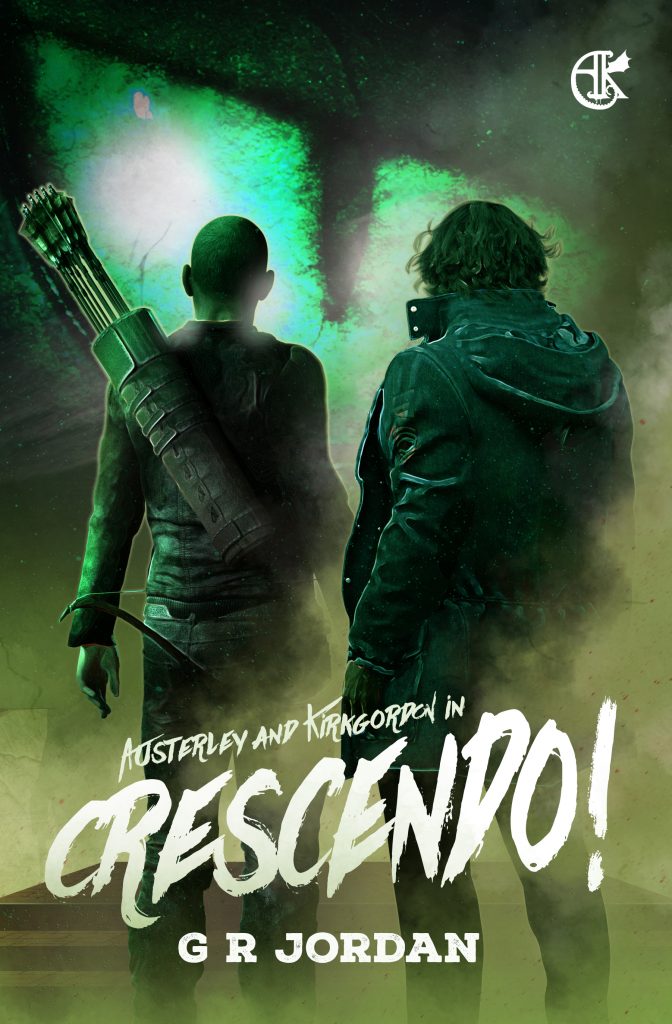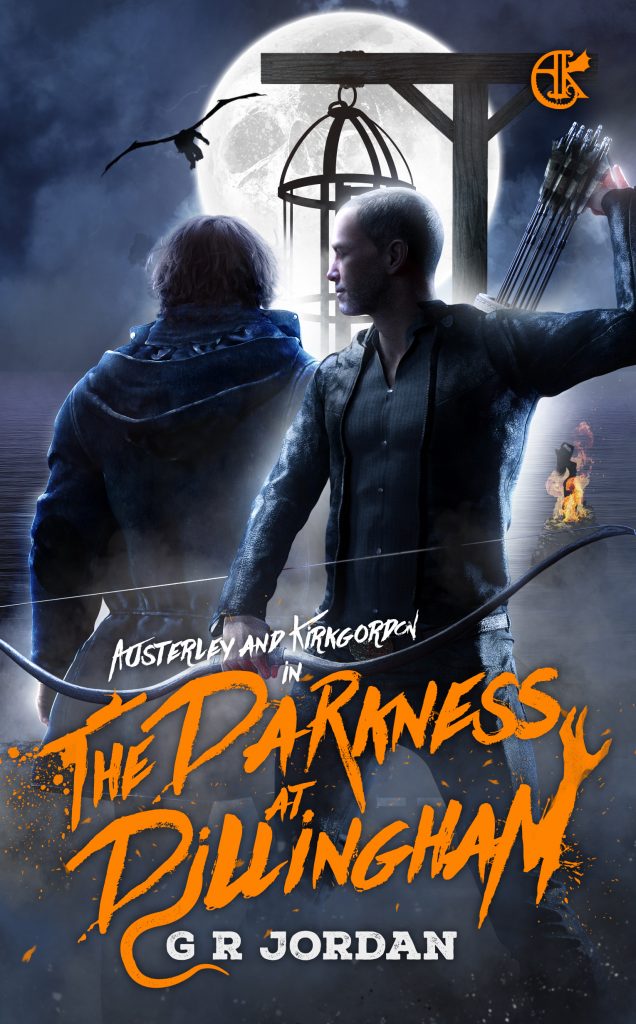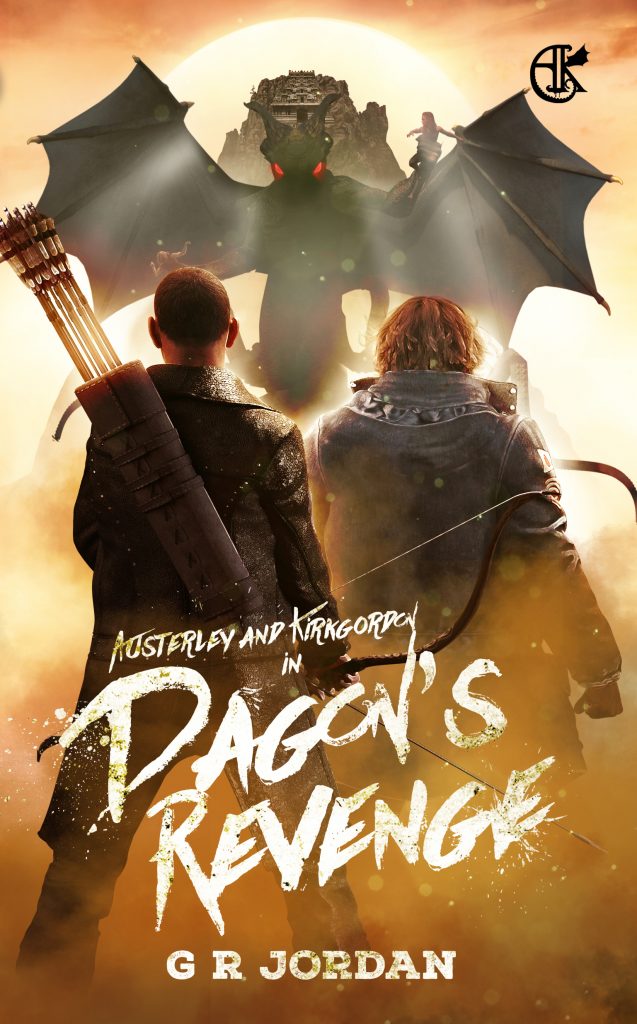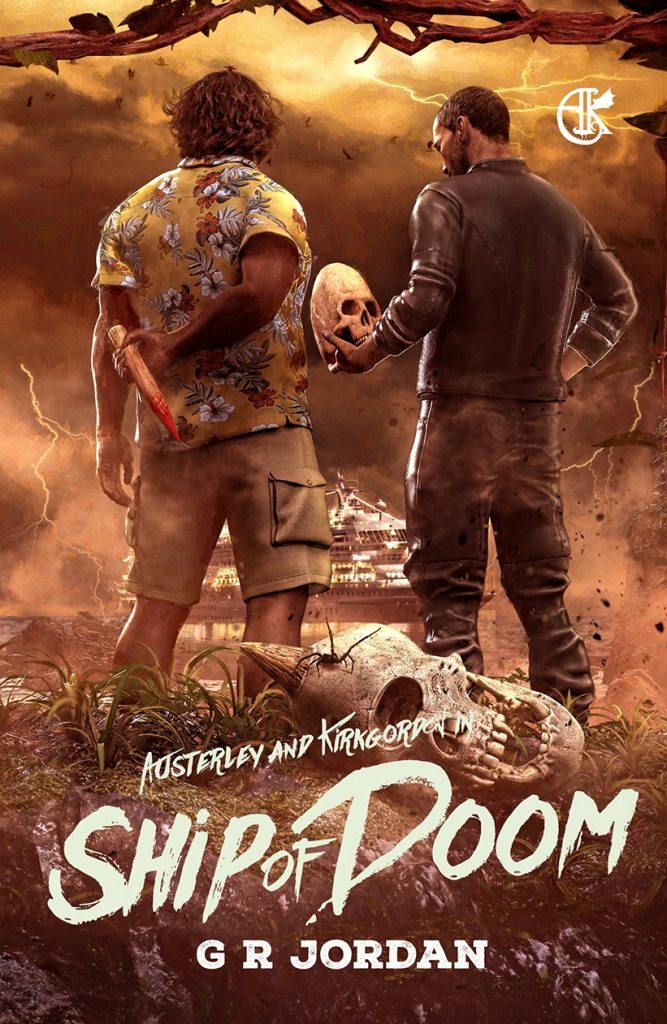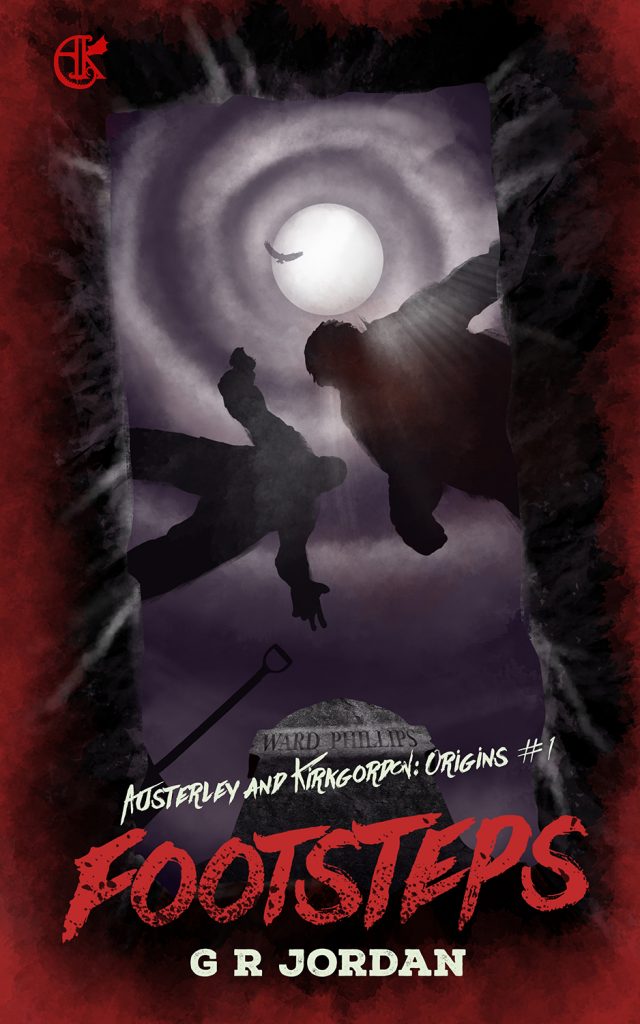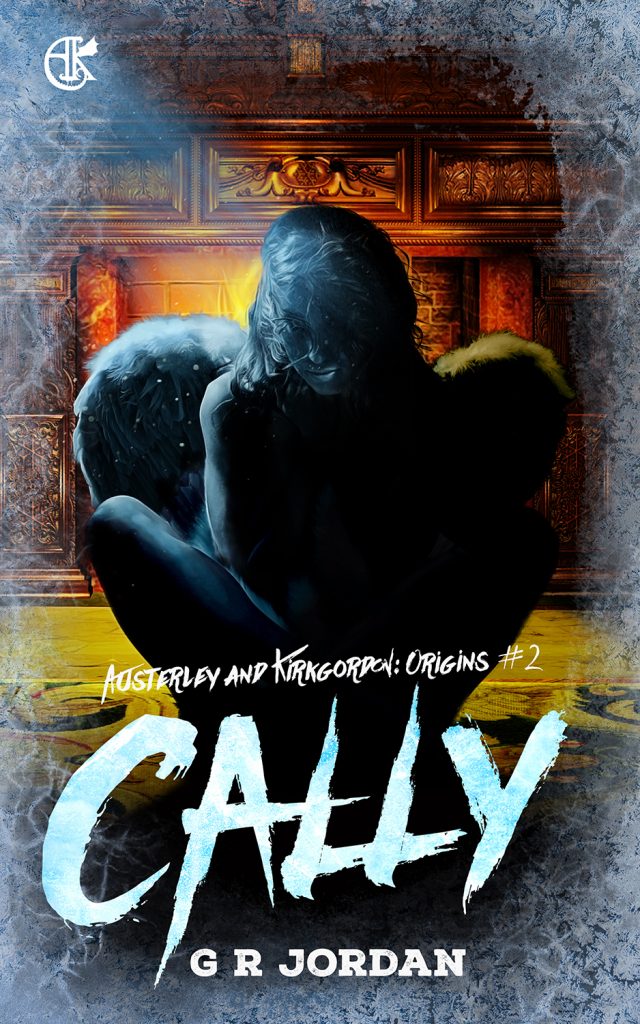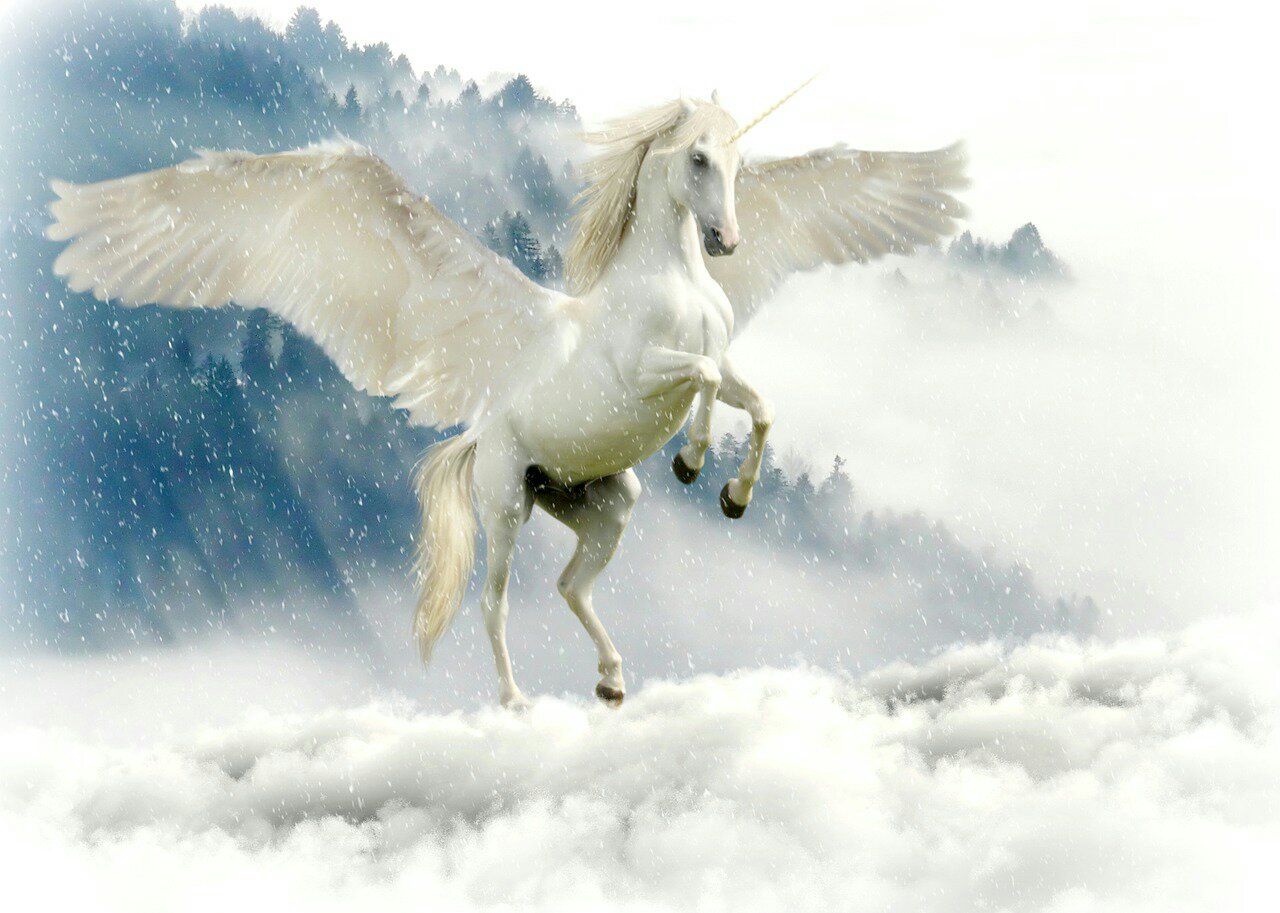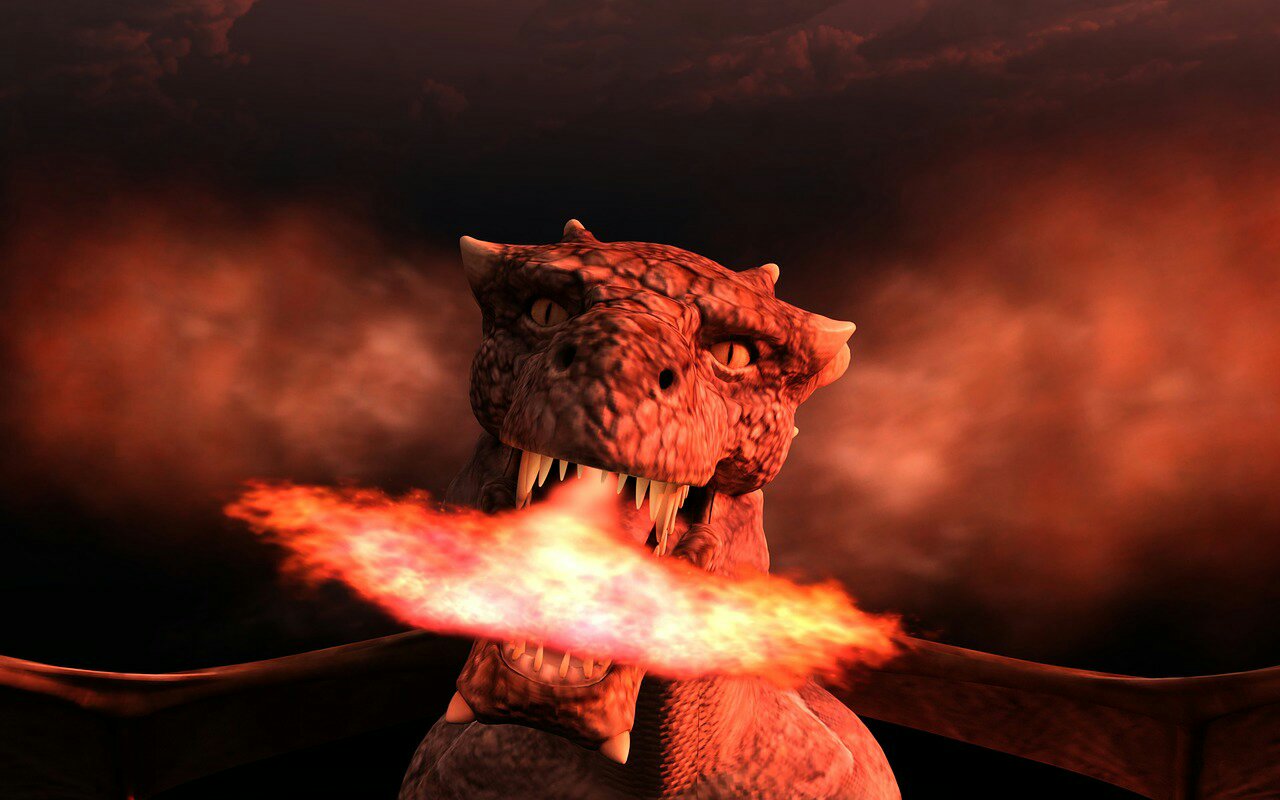As an author I am often asked where my ideas come from for characters and plots which makes me pause and actually think, where have they come from? In response to this feeling, I’m taking a few blogs to discover for myself which bit of this dark mind of mine has produced my main characters.
Mr. Kirkgordon is the one of feuding duo who had their relationship first formed on paper in “Crescendo!”, although a later short origin story, “Footsteps”, takes us back to their first actual meeting under a grave. Agile and a former bodyguard, Kirkgordon can handle himself in trouble and is ideal to look after the volatile eldritch genius that is Mr Austerley.
Kirkgordon comes from that part of us that knows what the right thing to do is, and that we’re going to have to do it despite the hardship that comes from doing it. He cannot walk away, even if the people he’s involved with
“Death? That’s it? Indy, everywhere we go there’s a general implication of death. Do you mean death here, in the corridor, or death in a more widespread sense?”
From Ship of Doom by G R Jordan
As a man of faith I wanted to have Kirkgordon put under pressure, both from the outside darkness but also from his own darker sides. He has a wandering eye when it comes to women and when Calandra comes on the scene, they have to fight the immense attraction between each other while working closely together in front of her former lover Austerley.
The archer in Kirkgordon comes from myself and was a lot of fun to write, although I doubt anyone in the real world has handled a bow like him. One of the sides of Kirkgordon brought out to me by a reader was how harsh he is on Austerley. Constantly pilling on the banter and sometime abuse, his understanding of his colleague takes time to grow until there is a mutual respect and distrust in the same measure. Each knows the other frailties and the trouble that comes from them.
“Nailed to your cross then. I hope you believe in redemption and foregiveness too, Havers?”
From Crescendo! by G R Jordan
Ultimately, I think Kirkgordon is ourselves thrown into the mess of situations with all fears, beliefs, pressures and blind corners, knowing that we still have to get it done. He’s not the most powerful, most clever, wisest or even the bravest of the characters but he always gets it done, fighting his conscience all the way. In that I reckon he’s like a lot of people on this earth, albeit his demons tend to jump out of the ground at him.
Check out Kirkgordon’s psychologist’s report here and see what the professionals at SETAA think of him. Or for the books check out my shop and find Kirkgordon for yourself!
